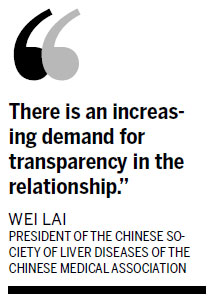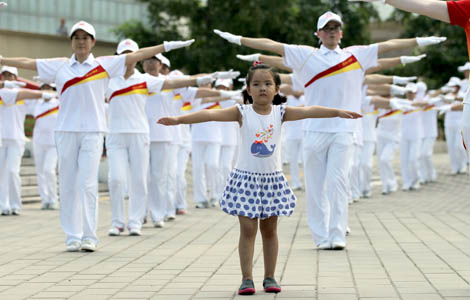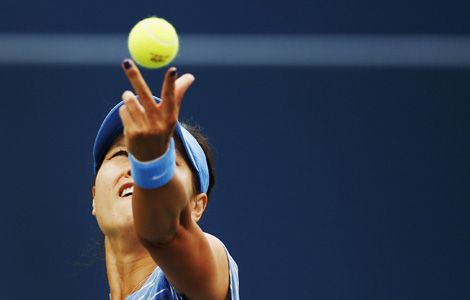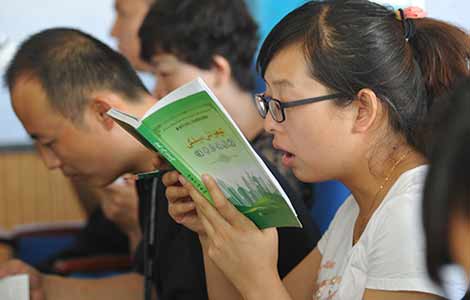Transparency demanded in doctor-company relations
Updated: 2013-08-09 07:38
By Shan Juan and Wang Qian (China Daily)
|
||||||||
Medical experts and academic societies are calling for rules to enforce transparency in their relationships with the pharmaceutical industry, especially in the industry's funding of academic activities.
But medical conferences and marketing are necessary and even beneficial and shouldn't be banned, experts said.
Given the authorities' investigation of GSK China last month in a case of suspected commercial bribery, many have denounced multinational drug companies' funding academic activities, calling it a way to bribe physicians.
Some insiders say the industry pays for doctors' airfares, conference registration fees, hotels and meals at major international conferences.
That behavior could corrupt doctors, influence their prescriptions, and indirectly drive up drug prices and bills, some experts said.
|
 |
But Zhong Nanshan, director of the Guangzhou Institute of Respiratory Disease and a renowned academician with the Chinese Academy of Engineering, believes otherwise, saying the conferences are necessary.
"Multinational pharmaceutical companies pay a lot to send Chinese doctors to attend academic conferences and seminars, and that plays an important role in prompting the development of China's medical capability," he said at the opening ceremony of an academic conference on respiratory diseases last month.
Doctors must continue learning in their specialties, and reading professional journals and attending seminars are the main ways to keep their knowledge up to date, Zhong said. Such activities affect the doctor's career development and medical skills, he added.
"In order to avoid any illegal activities, all the money sponsored will be paid to travel agencies, airline companies and hotels, with no cash accepted by doctors," he said.
Niu Zhengqian, deputy director of the Chinese Pharmaceutical Enterprises Association, agreed, adding that doing so is in line with international practices for the industry.
Niu said that at least 70 percent of doctors' medical knowledge comes from interactions with others in the medical field, including at academic conferences that the association funded.
"It's reasonable to include that cost while pricing the products," he said.
Even without such conferences, cutting off the connection between drug companies and doctors is impossible, Niu added, citing doctors' indispensable role in helping with clinical trials for new drugs under development.
Wei Lai, president of the Chinese Society of Liver Diseases of the Chinese Medical Association, said maintaining academic independence and fairness under these circumstances is a long-term challenge that medical academic circles in the nation and the rest of the world face.
"There is an increasing demand for transparency in the relationship," he said.
Wei said that health authorities or academic societies should devise and introduce rules and regulations to safeguard transparency and fairness during the communication and partnership. He said the drafting of clinical guidelines should be free from industry sponsorship.
Also, a single company should not sponsor important and large-scale academic conferences alone, he said, referring to practices in other countries. In the United States, for example, the Physician Payments Sunshine Act, effective since Aug 1, requires drugs and medical device companies that participate in federal healthcare programs to report payments and items of value given to doctors and teaching hospitals.
Most Viewed
Editor's Picks

|

|

|

|

|

|
Today's Top News
US realty market 'connects dots' with China buyers
Pharm giant suspected of bribery
Economic prospects improved
Beijing rejects protest over patrol
China Unicom tests 4G network
Switching tactics in ambitious new move
Rare earths on shaky ground
More young adults living with parents
US Weekly

|

|












